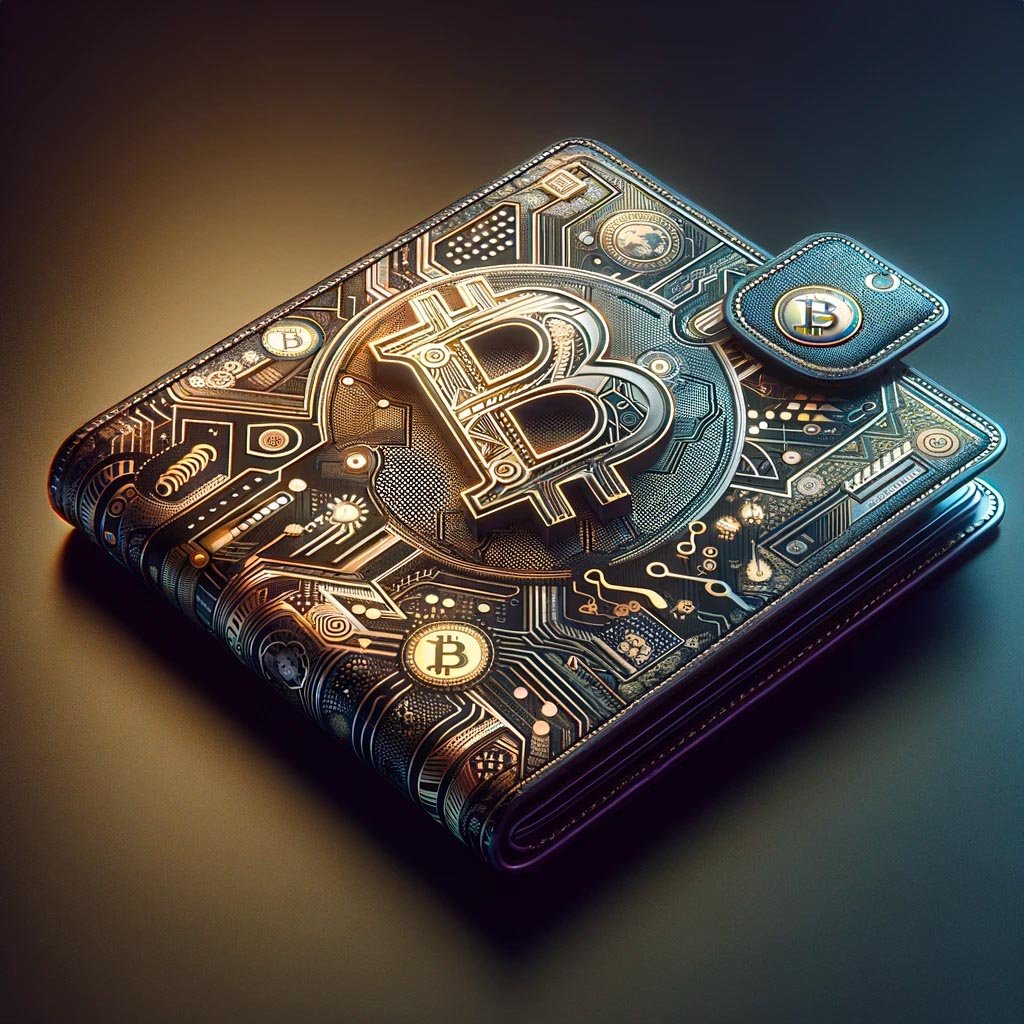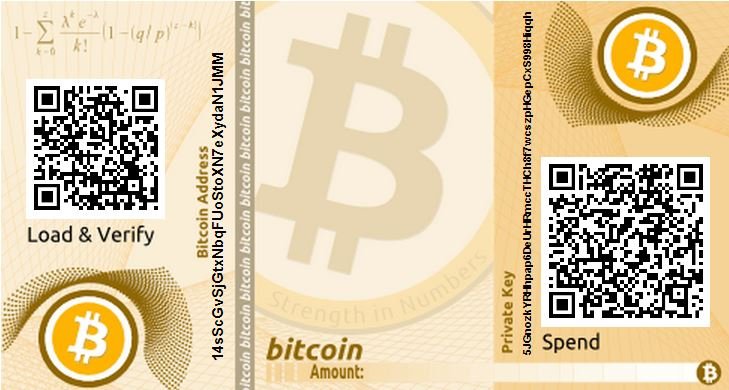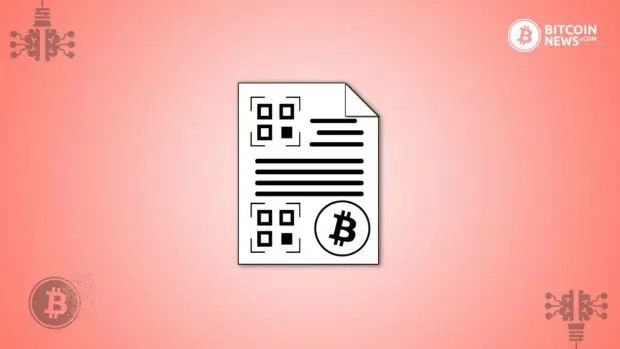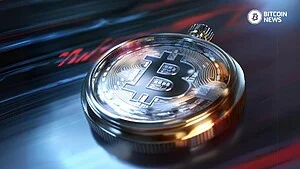Table of Contents
Introduction
A bitcoin paper wallet represents a form of cold storage, meaning they are entirely disconnected from the internet, thereby offering a secure method to store Bitcoin information offline.
Fundamentally, a paper wallet is a physical document that contains both the public key (which you can share with others to receive bitcoin) and the private key (which you use to access and send your bitcoin). It’s a straightforward, cost-effective way to secure your bitcoin, but it’s not devoid of risks.
Context and Advantages of Bitcoin Paper Wallets

A paper wallet, in essence, is a piece of paper that includes both your public and private keys. While most users will leverage a seed phrase for wallet backup and restore, many will use a QR code for the public and private key backups.
The public key is your Bitcoin address, used to receive bitcoin, while the private key is what you use to access and send bitcoin. This method is favored for its simplicity and the fact that it’s entirely offline, making it immune to online hacking attempts.
Although it might not be a practical way to store the 12 or 24-word seed phrases that many wallets generate, it is a way to backup single keys. Seed phrases are different, as they generate multiple keys, and facilitate the backing up and restoring procedure of an entire wallet.

Risks and Notable Scams
However, users must be vigilant as the paper wallet landscape is not without its predators. One reported scam involved paper wallets being scattered in public places, like streets and parks, especially in New South Wales, as reported by the NSW Police.
Unwary finders of these wallets might believe they’ve stumbled upon free bitcoin, but these are traps designed to scam individuals out of money. When scanned, these paper wallets led people to a scam website, stating they have up to $16,000 in bitcoin waiting to be transferred, but of course, for a fee.
Remember, there is no free lunch. Practice good habits now because scams will continue to become more sophisticated with AI.
Related reading: AI Scams Are on The Rise: Here’s How to Protect Yourself
Another significant concern involves the integrity of some paper wallet services. For instance, the website bitcoinpaperwallet.com was reported to be running a wallet sweeping scam. Unsuspecting users who generated paper wallets on the site weren’t the only ones with access to the private keys of the coins. This meant that the creators or others could potentially access and transfer the bitcoin without the owner’s consent or knowledge.
Related reading: Everyone’s a Scammer
Understanding Entropy and Avoiding Scams
When creating a paper wallet, the concept of ‘entropy’ is crucial.
In computer science, entropy refers to the randomness collected by an operating system or application for use in cryptography or other uses that require random data. This randomness is crucial for generating a secure private key that’s truly unique and difficult for others to guess. A low entropy means predictability, making your wallet vulnerable to being ‘swept’ by someone who can guess or calculate your private key.
For those not technically savvy, it’s vital to seek guidance from someone who is. They can ensure you don’t fall prey to scam websites and that your wallet is generated with sufficient entropy. Always conduct thorough research and verify the sources and services you use to generate or store your bitcoin.
Vigilance and Verification: Your Key Defenses
Always critically verify the sources and services you use to generate or store your bitcoin. Treat any unsolicited communication with skepticism, especially if it involves your bitcoin holdings. Offers that seem too good to be true, usually are. Develop a habit of double-checking URLs and the legitimacy of wallet services before engaging with them. If you’re uncertain, seek out community feedback from trusted forums or consult with knowledgeable individuals.
Remember, once a Bitcoin transaction is made, it’s irreversible; there’s no central authority you can appeal to for a reversal. The decentralized nature of Bitcoin, while one of its greatest strengths, also means there is no recourse for mistakes. You are, in every sense, your own last line of defense against potential scams.
Regularly updating your knowledge on security best practices and staying informed about the ever-evolving landscape of scams can significantly mitigate the risks. Your informed caution and continuous vigilance aren’t just valuable assets; they’re indispensable shields that protect your bitcoin from the myriad of threats lurking in the digital world. Without them, the risk of loss is not just a possibility but a likelihood.
FAQ
u003cstrongu003eWhat is a Bitcoin paper wallet?u003c/strongu003e
A Bitcoin paper wallet is a physical document that contains both the public key (for receiving bitcoin) and the private key (for accessing and sending bitcoin). It serves as a form of cold storage, ensuring the security of Bitcoin information offline.
u003cstrongu003eHow does a paper wallet work?u003c/strongu003e
A paper wallet works by providing a secure, offline method to store bitcoin. The public key is used to receive bitcoin, while the private key is utilized for accessing and sending bitcoin. It is a straightforward and cost-effective method.
u003cstrongu003eWhy use a Bitcoin paper wallet?u003c/strongu003e
Bitcoin paper wallets are favored for their simplicity and the fact that they are entirely offline, making them resistant to online hacking attempts. They provide an additional layer of security for bitcoin storage. But there are risks one should be aware of.
u003cstrongu003eWhat are the risks associated with paper wallets?u003c/strongu003e
While paper wallets offer security, users must be vigilant. Scams, such as distributing fake paper wallets in public places, and concerns about the integrity of some paper wallet services pose risks. Users should be cautious to avoid falling victim to scams.
u003cstrongu003eWhat is the significance of entropy when creating a paper wallet?u003c/strongu003e
Entropy is crucial in generating a secure private key. Low entropy makes a wallet vulnerable to being ‘swept’ by someone who can guess or calculate the private key. Users, especially those not technically savvy, should seek guidance to ensure their wallet is generated with sufficient entropy.
u003cstrongu003eHow can I avoid scams when using a paper wallet?u003c/strongu003e
Always verify the legitimacy of sources and services used for generating Bitcoin wallets. Treat unsolicited communications with skepticism, double-check URLs, and seek community feedback. Remember, Bitcoin transactions are irreversible, and vigilance is your key defense against potential scams.
u003cstrongu003eWhat notable scams have been reported with paper wallets?u003c/strongu003e
One reported scam involved distributing paper wallets in public places, leading unsuspecting finders to a scam website. Additionally, some paper wallet services have been reported to engage in scams, compromising the security of generated wallets.
u003cstrongu003eHow can I protect my Bitcoin from scams?u003c/strongu003e
Regularly update your knowledge on security best practices, stay informed about evolving scam landscapes, and exercise continuous vigilance. Be cautious about offers that seem too good to be true and verify sources before engaging with them.
Is there a central authority who can u003cstrongu003ereverse Bitcoin transactions?u003c/strongu003e
No, once a Bitcoin transaction is made, it is irreversible. The decentralized nature of Bitcoin means there is no central authority to appeal to for reversals. Users are their own last line of defense against potential mistakes or scams.










